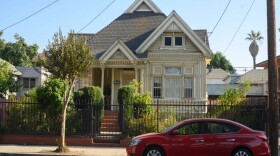Venezuela's pro-government Supreme Court ruled on Thursday that the main opposition coalition won't be allowed to register for the presidential election, a decision that is fueling accusations of election rigging even before people head to the polls.
The ruling follows the government's decision, under President Nicolás Maduro and the United Socialist Party, to hold early elections, before April 30.
The nation's most popular anti-Maduro leaders, such as Leopoldo López, leader of the Popular Will party, and Henrique Capriles, head of the Justice First party, who were both previously excluded from the election are now scrambling to figure out their response, according to Reuters.
The wire service says the coalition had planned to hold primaries to settle on a joint candidate.
As NPR reported, many leaders of Venezuela's fractured and weak opposition have been imprisoned by the government, barred from politics or remain in self-imposed exile. They claim the electoral system has been rigged to favor Maduro and guarantee him a second term.
Moving the election ahead by several months has drawn international condemnation. The U.S. has declared it will not recognize the elections, saying they will only undermine Venezuela's constitutional order and deepen tensions within government.
Critics blame Maduro for the country's current economic collapse, which has sparked a widespread humanitarian crisis, including food shortages. For several months in 2017 he faced almost daily protests from an opposition party that says he is trying to maximize power through brute force. Meanwhile, Maduro says his opponents are trying to illegally overthrow his government.
Maduro has been in power since the 2013 death of Hugo Chávez, the founder of Venezuela's ruling United Socialist Party.
Copyright 2018 NPR. To see more, visit http://www.npr.org/.






